
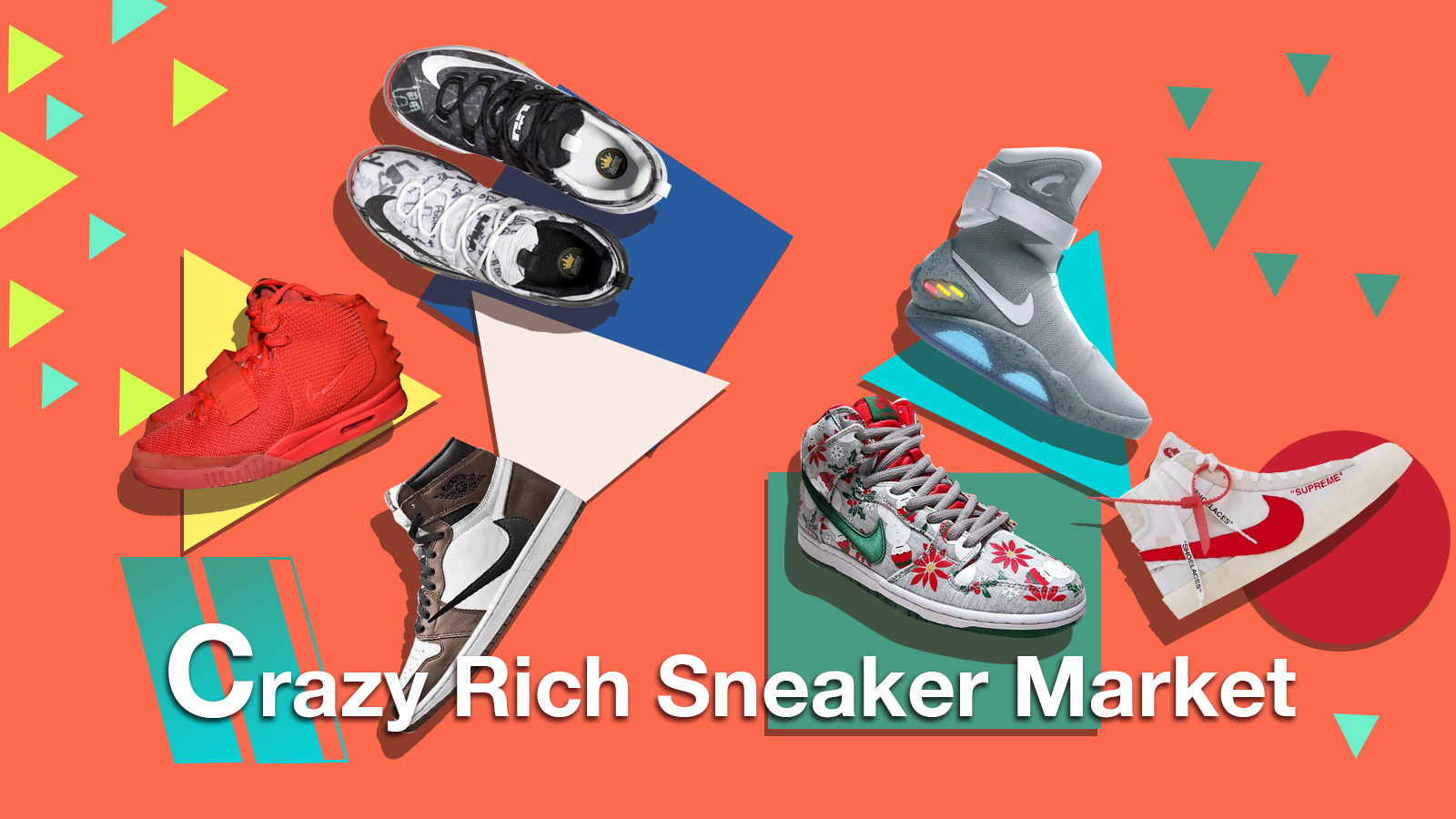
Today, sneakers are having their moment.
From the "Back to the Future" Nike Air Mags to the Air Yeezy 2 "Red Octobers," the global sneaker market is heating up, led by a new wave of exclusive footwear that's igniting the passion of young collectors.
Sneaker buyers, capital tycoons, bitcoin holders, fashion designers, high-street culture shapers and basketball lovers are all digging deep in this arena.
Once a niche market, the sneaker collecting and resale business has come a long way. Now, a secondary market, the sneaker culture is flourishing in China.
Culture shapes all
Beijing-Xiegui, which means "shoe addict" in Chinese, softly caresses his Nike's "Back to the Future" basketball shoes; it's the sort of petting you would often see being given to a kitten or a puppy. The 21-year-old Beijing-based sneaker expert has personally collected more than 100 sneakers, most of which are limited editions and exclusive member-only versions.
Also an online influencer who shares his knowledge about sneakers with his numerous followers, Xiegui sees himself a shoe addict who can't live a happy life without collecting shoes. For him, it is more than a passion; it's a way of life.
In his interview with CGTN, he carefully took out the shoe boxes, selected the pairs he thinks are worth a special introduction on TV and talked about the history of each pair with unbelievably accurate data, including the market price today versus when he first purchased each pair, the type leather, the significance of each design and more.
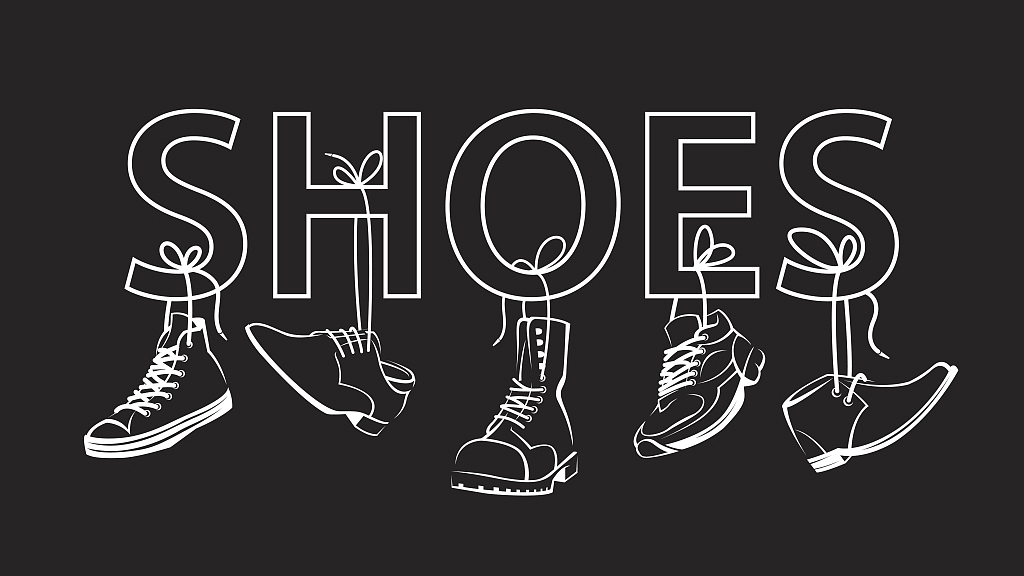
"Since junior high school, I've started buying good sneakers, as it's a symbol for boys who can play real cool basketball at school, " he said, explaining that due to China's uniform system, many boys try to distinguish themselves by wearing "cool sneakers" with "lame" the tracksuit-like uniforms.
As Xiegui grew older and went to college in the U.S., he's realized that his lifestyle and spirit were partly built on this passion. By saving daily expenses and seeking opportunities to earn extra money, he gradually moved onto the track of professional collecting. He is not alone; most young Chinese collectors also discovered their passion for sneakers at a very young age on the basketball court.
Xiegui's spending weakness is exclusive sneakers. His most prized pair is his "Back to the Future" the limited-edition Nike Air Mags from the 1989 classic "Back to the Future: Part II," which cost him thousands of dollars in an online auction. While not denying that he is an avid "sneakerhead," as evidenced by his choice of name, which also means "shoe ghost" in Beijing, Xiegui insists that learning about sneakers, buying them, collecting them and keeping them are out of pure passion even before the sneaker market was as hot as it is today.
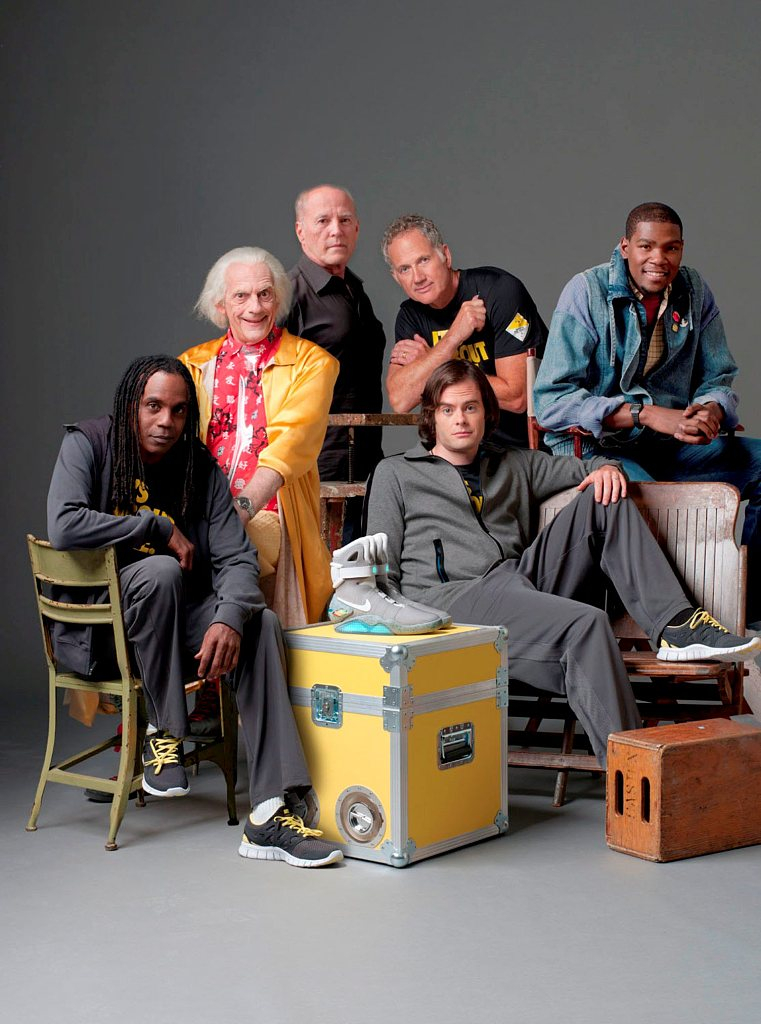
The Nike Air Mag shoes, made famous in the 1989 classic, feature a sleek design with lights and even a self-lacing mechanism in honor of the hit film "Back To The Future." /VCG Photo
He has two walls of clear shoe boxes at his home, and his followers joke that the two walls are worth the cost of a house in Beijing. But Xiegui said he will never sell any of his collectibles because he cherishes them and they bear lots of special memories.
"This pair of sneakers comforts my heart, and they always encourage me to go for it. The connection between me and these sneakers is irreplaceable," he said.
In addition to being a collector’s item, Xiegui also views sneakers as motivation to work more diligently.
Sneaker collectors also respect him because of his professionalism. Xiegui rapidly accumulated fame and opportunities within the sneaker circle by uploading sneaker-related vlogs showing his massive collection to apps and video-sharing websites.
A booming market
Driven by profit-oriented scarcity, keeping short supplies to the open market, the sneaker market is experiencing an all-time high under the celebrity-driven endorsement culture.
According to data from Statistic.com, Air Jordan took 44 percent of the secondary sneaker market in 2018, while Nike took 26 percent and Adidas 24 percent. These top three brands are at a big price premium too — 59, 58, and 25 percent respectively. Nike's footwear revenue in the Greater China area from 2009 to 2019 increased 4.5 times from 940 million U.S. dollars to 4,262 million U.S. dollars.
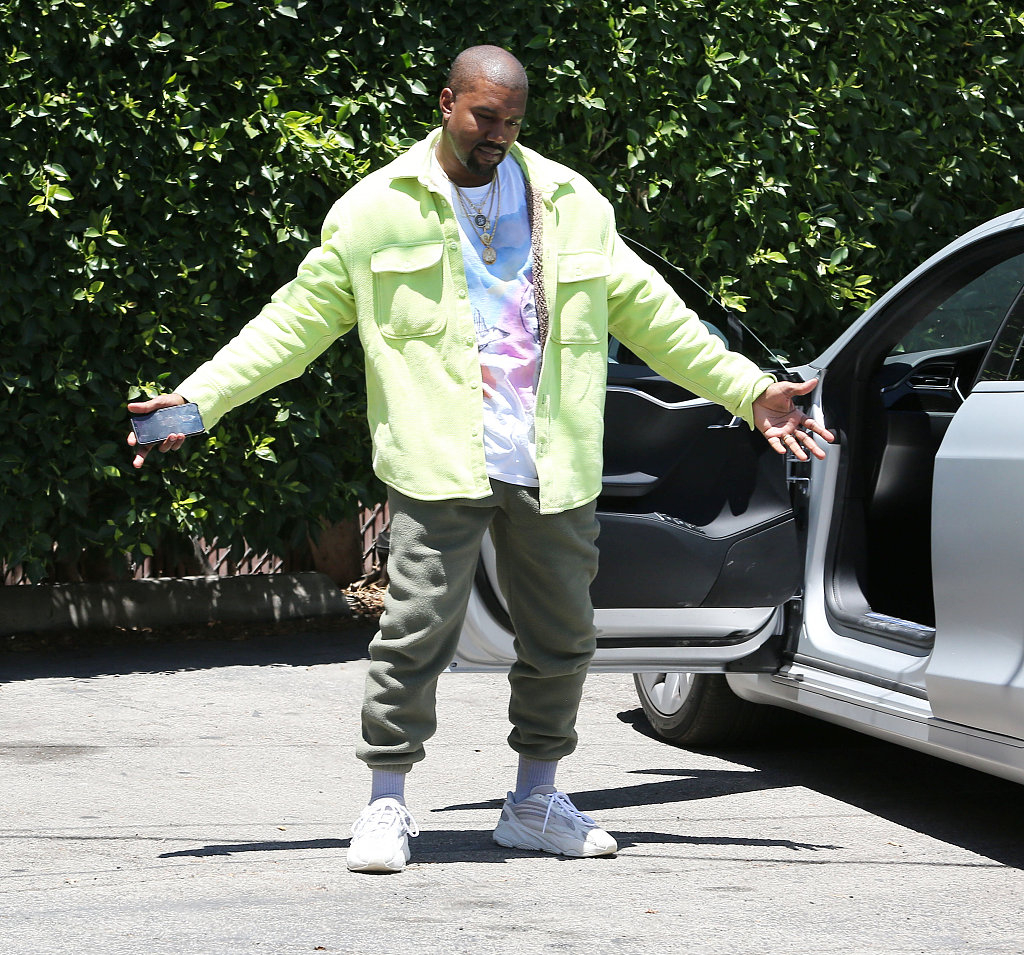
YEEZY designer, American rapper Kanye West's wearing his off-white YEEZY tennis shoes. /VCG Photo
Nike Air Yeezy 2 Red October, a collaboration between Nike and American rapper Kanye West, sold out within minutes in 2014 and later resurfaced on eBay where bidding went up to 16 million U.S. dollars.
The market value of StockX.com, a leading sneaker resale online platform based in Detroit, is estimated to hit 1 trillion U.S. dollars this year after receiving financing of 44 million U.S. dollars historically. Price-wise, high-end sneaker online consignment store Fight Club currently sells pairs priced anywhere from 6,785 to 15,000 U.S. dollars.
If If you see a footwear auction website with red and green curves, brand K-lines, and dancing real-time prices, don't panic; you did not click on a stock market website by mistake. What you are seeing is a sneaker resale platform with a lot of financial metrics and analysis tools. Their presence signifies a shift in the game; the sneaker market is no longer simply a collectors' biding game.
Michael Liu, the manager of Solestage Beijing, has seen the market develop from a tiny subculture to a domain with huge potential. He never thought of turning sneaker collection into a business before, but pushed by the rising wave of the market, he knew it was time to bring his interest and expertise to the game. When he first saw the Solestage Store in LA, he started to picture a Chinese version with a street fashion business model.
"Many very young customers come to the store with a clear plan mapping their target shoes. Sometimes they don’t even try the shoes on; they just come to get them by paying the high price without frowning for a second. You can smell the market potential from them," Liu told CGTN.
Xiegui, as a representative of younger generation collectors, told CGTN he thinks he is lucky compared to others who sometimes borrow money to buy expensive shoes. He said the real sneaker fans are not as resourceful and rich as those who buy sneakers to make money from reselling it a higher price. Individual collectors can’t compete with them in terms of financial capacity.
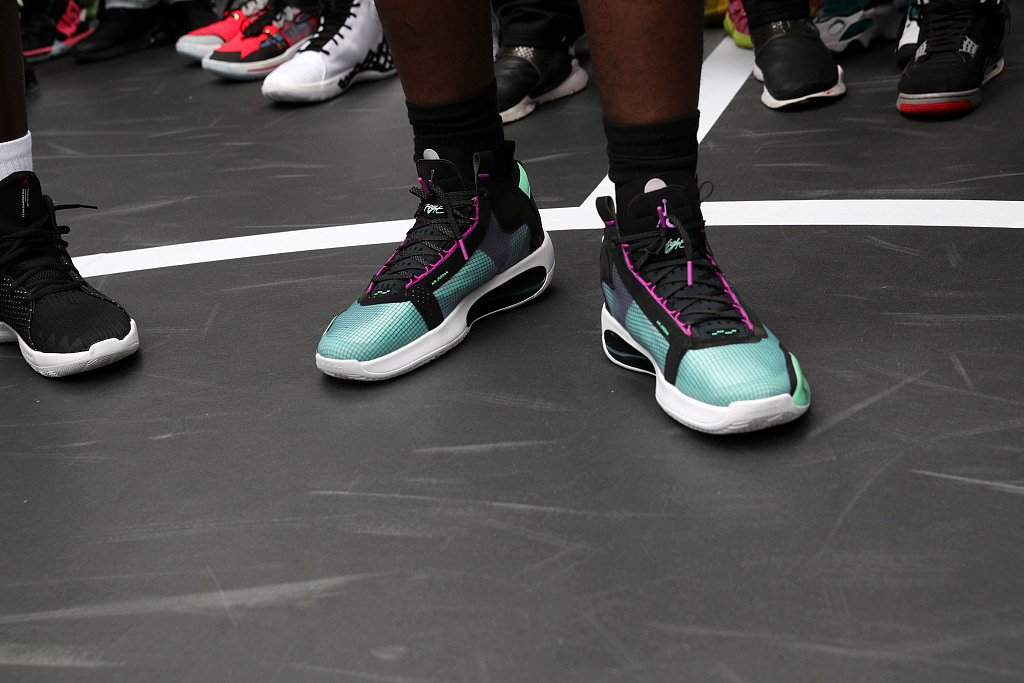
A pair of Air Jordan 34 worn by Zion Williamson at the Jordan Brand launch of the Air Jordan 34 in New York City, September 7, 2019. /VCG Photo
What's next?
"Young Chinese in their 20s and 30s are very into sports," said Liu, explaining that today's younger generation is fond of international sports and street culture.
They are not simply spending money on shoes; it's more like a way for them to integrate their understanding of life into fashion. The trend is out there; you can tell from people's clothing to their footwear.
Maybe this is why the Chinese sneaker market is growing so fast. China’s sneaker culture is developing rapidly, but it is also not without its kinks. One such issue is counterfeit products. Some items have their own channels in China, and some people try to earn a lot of dirty money by selling counterfeit items. When a market develops to such a scale, profits always come with risks.
"I have faith that the sneaker market will be well regulated in the future," said Liu. He believes the necessary laws and regulations will come out to help manage the market. Though he hates counterfeit products, he knows perfectly that sneaker market here needs time to rise.
"This is a legit track for a secondary market to develop, especially in China," he said.
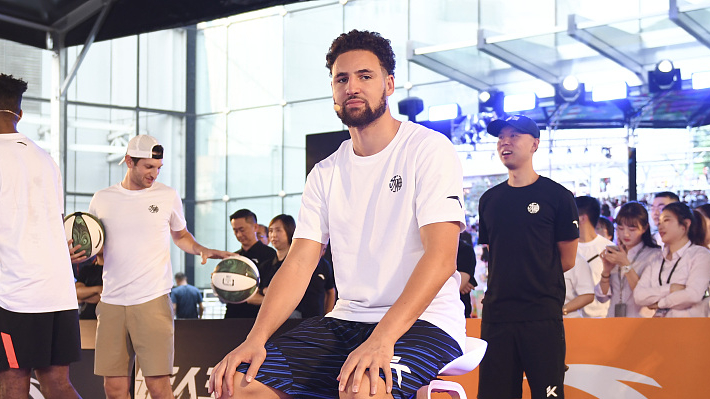
NBA Golden State Warriors star Klay Thompson has a sneaker deal with Chinese brand Anta. /VCG Photo
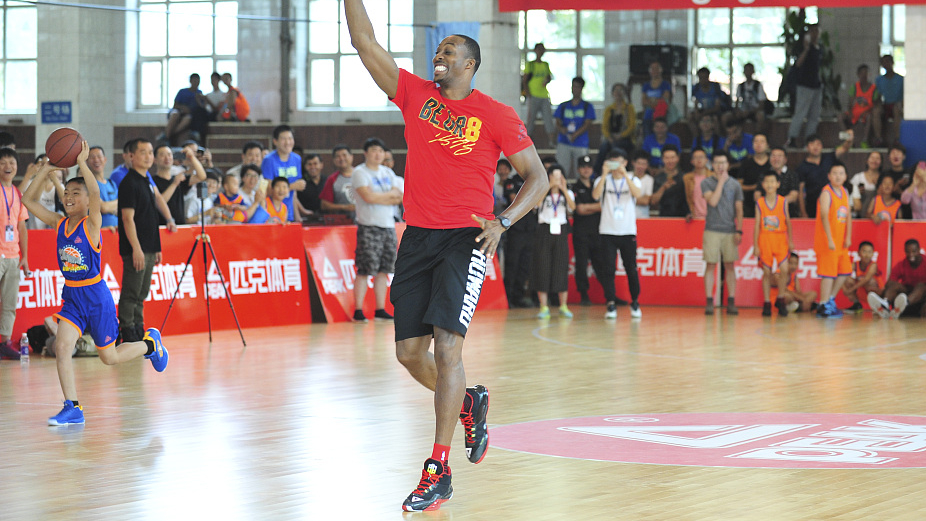
NBA superstar Dwight Howard has signed with Chinese sneaker brand Peak. /VCG Photo
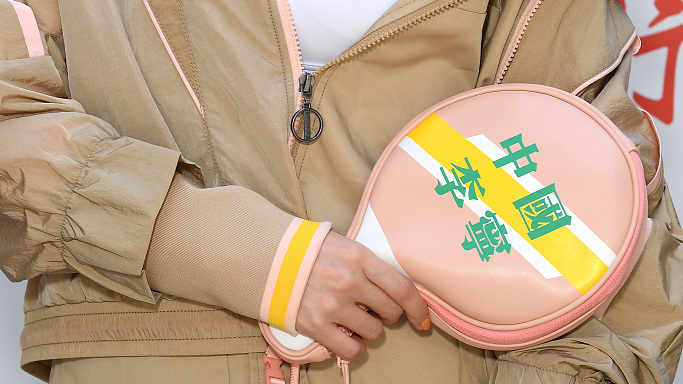
Li-Ning's Spring Summer 2020 during Paris Fashion Week on June 22, 2019, in Paris, France. /VCG Photo
Chinese high street fashion and sneakers brands have done a brilliant job in recent years. Li Ning stunned fans at Paris Fashion Week and New York Fashion Week this year by launching pop up stores and creating fun street events overseas.
Collaborations between other Chinese sports brands and NBA stars are also very promising. More professionals like Michael are helping o connect Chinese brands with the international fashion community and bring Chinese culture and designs to the U.S.
Sneaker resale is projected to become a 6 billion U.S. dollars business globally by 2025, per the data from a recent analysis from Cowen & Co, an American multinational independent investment bank. It is indeed a cash cow, and with Chinese people's improved quality of life and disposable income, the market may see an even bigger wave soon.
Video editor(s): Yang Shengjie, Shen Anqi
Cover image designer: Sa Ren

Copyright © 2018 CGTN. Beijing ICP prepared NO.16065310-3
Copyright © 2018 CGTN. Beijing ICP prepared NO.16065310-3